
Pico Basile: The Crown Jewel of Equatorial Guinea
Standing tall at 3,011 meters, Pico Basile is the highest peak in Equatorial Guinea and the fourth highest in Africa. This majestic mountain is located on the island of Bioko. It is surrounded by lush rainforests and a wealth of biodiversity that will captivate any nature enthusiast. Hiking Pico Basile offers an exhilarating experience, with trails that wind through dense forests. You may encounter unique flora and fauna, including rare bird species and butterflies. The summit provides breathtaking panoramic views of the island and beyond, making the strenuous climb worth every step. The mountain is part of the Pico Basile National Park, which is rich in cultural and natural heritage. This protected area is an excellent spot for eco-tourism, offering visitors a chance to immerse themselves in the pristine beauty of Equatorial Guinea. Whether you are an avid hiker, a bird watcher, or simply someone who appreciates nature, Pico Basile is a destination that promises unforgettable memories.
Local tips in Pico Basile
- Best time to visit is during the dry season, from November to March, for clearer skies and safer hiking conditions.
- Hire a local guide for the hike to enhance your experience and ensure you don't miss hidden gems along the trail.
- Carry sufficient water and snacks, as there are limited facilities on the mountain.
- Wear sturdy hiking boots and bring a rain jacket, as weather conditions can change rapidly.
- Respect the natural environment and local wildlife; avoid leaving any trash behind.
Pico Basile: The Crown Jewel of Equatorial Guinea
Standing tall at 3,011 meters, Pico Basile is the highest peak in Equatorial Guinea and the fourth highest in Africa. This majestic mountain is located on the island of Bioko. It is surrounded by lush rainforests and a wealth of biodiversity that will captivate any nature enthusiast. Hiking Pico Basile offers an exhilarating experience, with trails that wind through dense forests. You may encounter unique flora and fauna, including rare bird species and butterflies. The summit provides breathtaking panoramic views of the island and beyond, making the strenuous climb worth every step. The mountain is part of the Pico Basile National Park, which is rich in cultural and natural heritage. This protected area is an excellent spot for eco-tourism, offering visitors a chance to immerse themselves in the pristine beauty of Equatorial Guinea. Whether you are an avid hiker, a bird watcher, or simply someone who appreciates nature, Pico Basile is a destination that promises unforgettable memories.
When is the best time to go to Pico Basile?
Iconic landmarks you can’t miss
Sofitel Malabo Sipopo Le Golf
Discover luxury and natural beauty at Sofitel Malabo Sipopo Le Golf, the premier hotel destination in Equatorial Guinea.

Parque Nacional de Malabo
Explore the breathtaking landscapes and diverse wildlife at Parque Nacional de Malabo, a must-visit park in Equatorial Guinea for nature lovers.
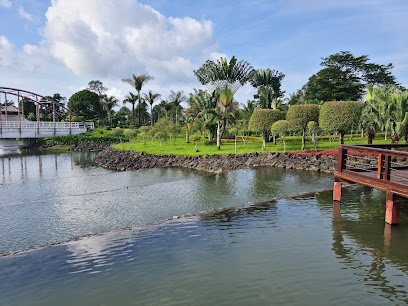
La Luna
Experience the best of Malabo's fine dining at La Luna, where exquisite flavors meet elegant atmosphere and exceptional service.
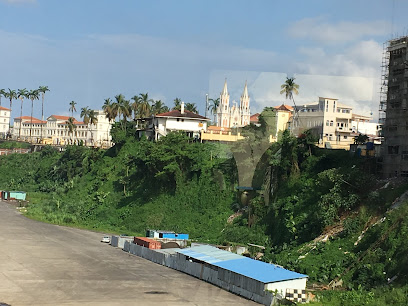
St. Elizabeth’s Cathedral
Discover the breathtaking St. Elizabeth’s Cathedral in Malabo, a stunning blend of faith, beauty, and rich cultural heritage that captivates every visitor.
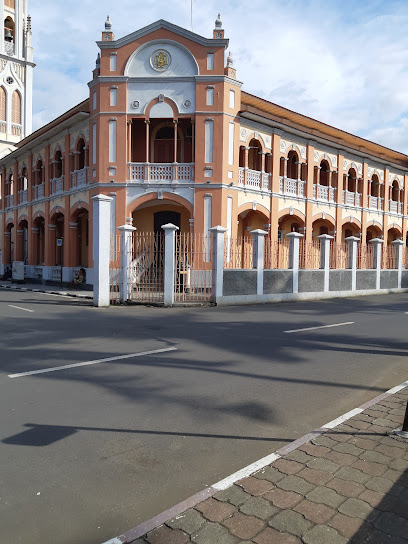
Bidji Binia
Experience the authentic taste of Italy at Bidji Binia, Malabo's charming pizzeria known for its delicious and diverse pizza offerings.
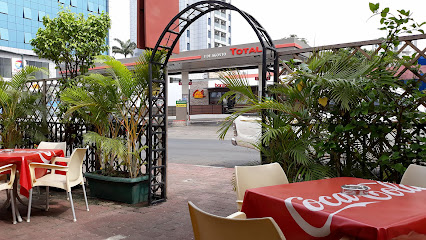
Aviator Pub and Café
Experience the vibrant atmosphere of Aviator Pub and Café in Malabo, where American cuisine meets local culture and live entertainment.
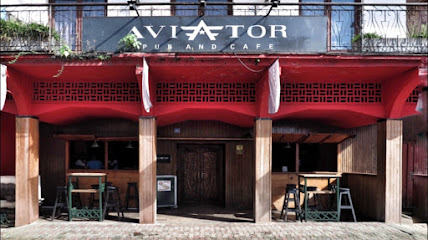
Torre de la Libertad
Experience the vibrant atmosphere of Torre de la Libertad, a premier restaurant and disco in Bata, offering local cuisine and lively nightlife.
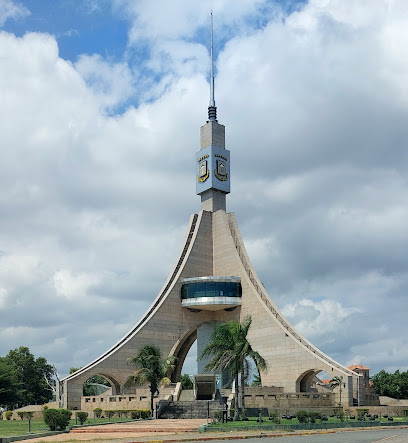
España Cultural
Discover the vibrant Spanish culture and exquisite cuisine at Españá Cultural, a must-visit destination in Malabo for every traveler.
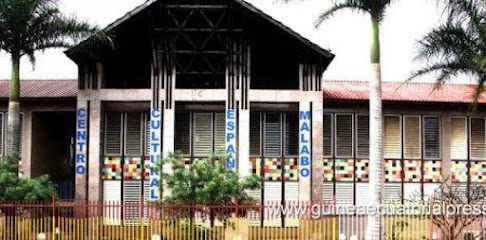
Parque Nacional del Monte Alén
Explore the stunning landscapes and rich biodiversity of Parque Nacional del Monte Alén, a must-visit destination for nature lovers in Equatorial Guinea.
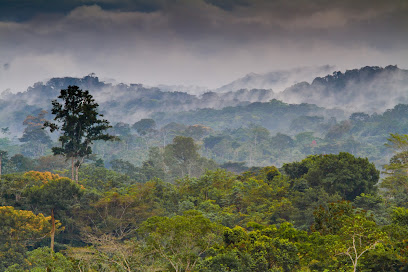
Pico Basilé
Explore the breathtaking heights of Pico Basilé, the highest peak in Equatorial Guinea, where adventure meets stunning natural beauty.
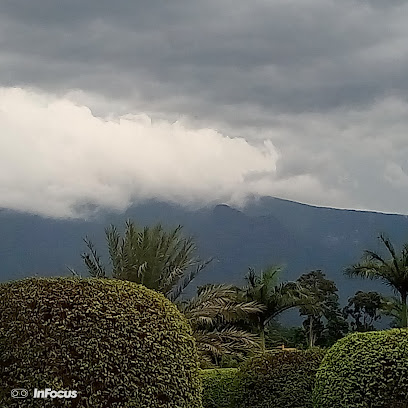
Reserva científica de la Caldera de Luba
Explore the breathtaking biodiversity of Reserva Científica de la Caldera de Luba in Equatorial Guinea, a nature lover's paradise rich in flora and fauna.

Unmissable attractions to see
The Golden Jubilee Monument
Explore the Golden Jubilee Monument in Buea, a stunning tribute to Cameroon's heritage, culture, and history, set against a backdrop of natural beauty.
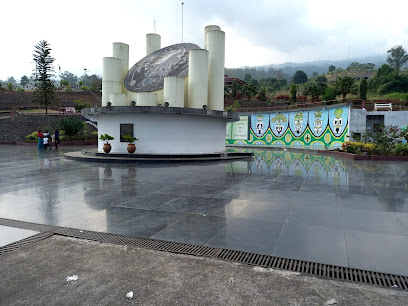
Parque Nacional del Monte Alén
Discover the breathtaking biodiversity and stunning landscapes of Parque Nacional del Monte Alén, a hidden gem in Equatorial Guinea for nature enthusiasts.
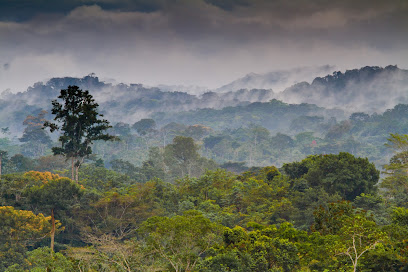
Yo-Yo Plage, Mouanko
Discover the tranquil paradise of Yo-Yo Plage, Mouanko - a serene beach getaway in Cameroon rich with culture and natural beauty.
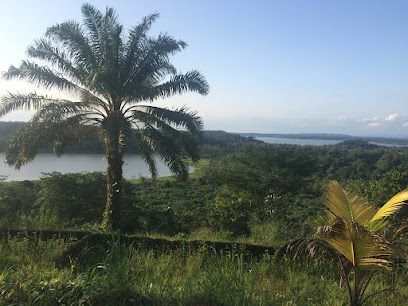
Upper Towe bridge
Explore the Upper Towe Bridge in Limbe, Cameroon, where breathtaking views and rich local culture await every visitor.
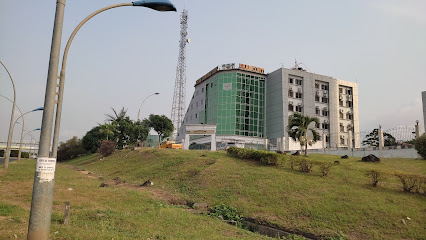
Bonganjo Palace
Explore the historic charm of Bonganjo Palace in Mutengene, Cameroon, a cultural landmark showcasing architectural beauty and local heritage.
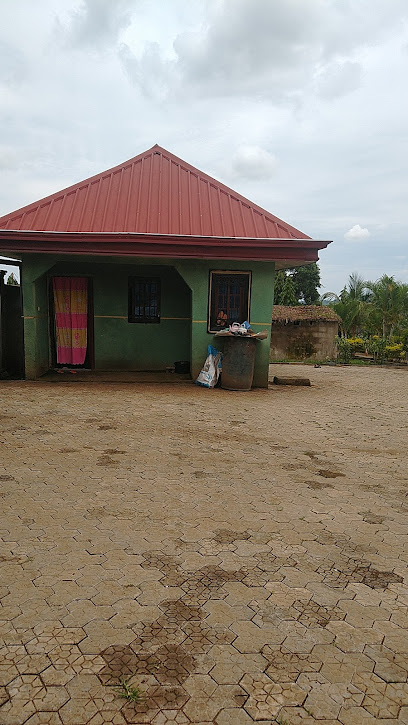
Mile 15 waterfall
Experience the stunning Mile 15 Waterfall in Buea, Cameroon, a picturesque escape into nature for all adventure lovers and photographers.
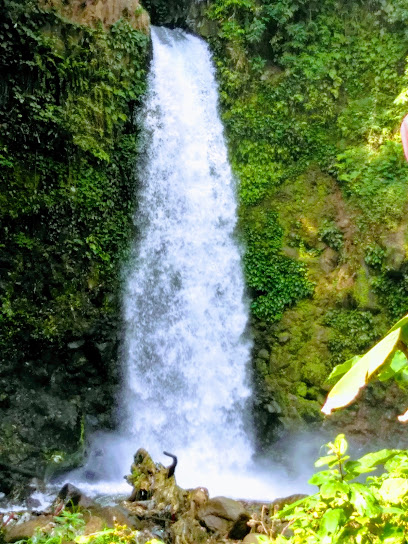
Pico Basilé National Park
Explore the breathtaking landscapes and rich biodiversity of Pico Basile National Park, Equatorial Guinea’s natural treasure and a paradise for nature lovers.
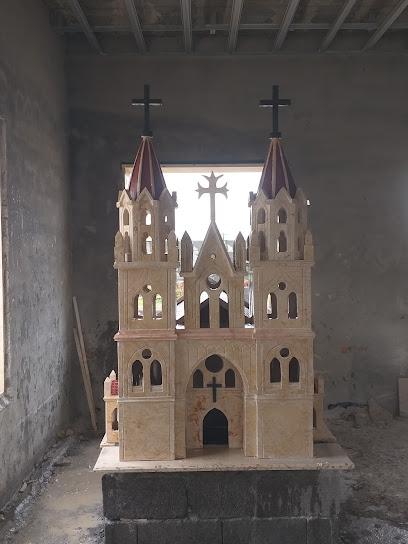
Essential places to dine
La Luna
Discover La Luna in Malabo - where exquisite cuisine meets elegant ambiance for an unforgettable fine dining experience.
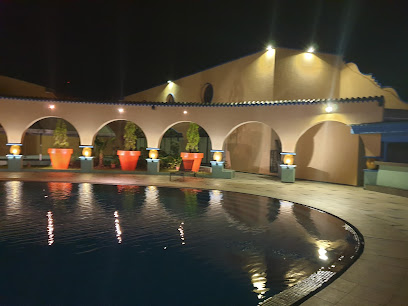
Bidji Binia
Discover the authentic taste of Italy at Bidji Binia in Malabo - where fresh ingredients meet culinary passion.
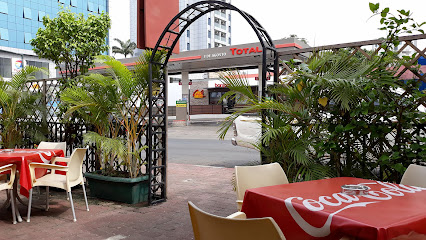
Aviator Pub and Café
Discover the lively spirit of Aviator Pub and Café in Malabo – where American flavors meet vibrant nightlife and unforgettable entertainment.
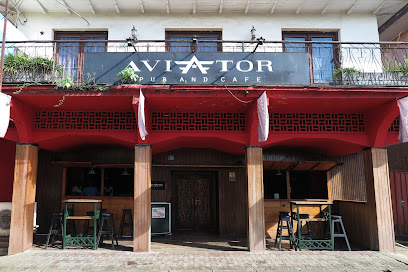
L'Atelier
Experience exquisite dining at L'Atelier in Malabo—where local flavors meet culinary artistry.
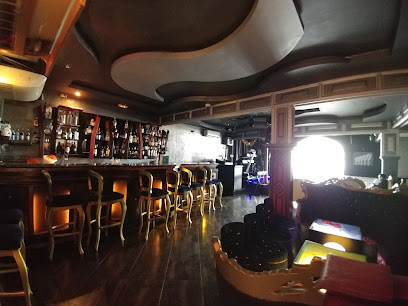
Hotel 3 de Agosto
Experience exquisite dining at Hotel 3 de Agosto in Malabo, where local flavors meet international cuisine in an inviting atmosphere.

Pizza Place
Savor authentic Italian flavors at Pizza Place in Malabo - where every slice tells a story!
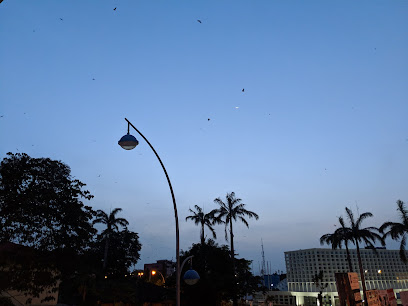
Restaurante Imagine
Discover exquisite dining at Restaurante Imagine in Malabo - where local flavors meet international cuisine amidst vibrant ambiance.
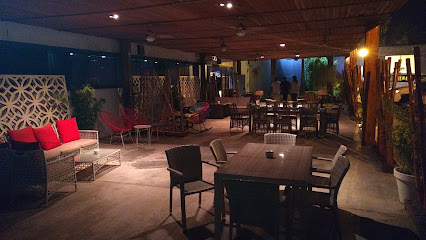
Delice de France
Discover Delice de France in Malabo - A charming French restaurant serving exquisite cuisine amidst a warm and inviting atmosphere.
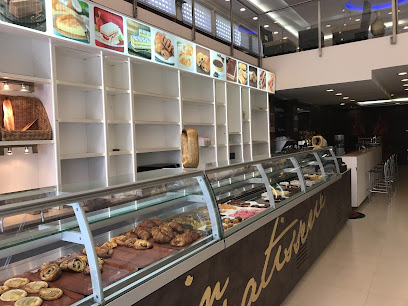
El Rancho Restaurant
Discover authentic Equatoguinean cuisine at El Rancho Restaurant in Malabo – where every meal is a celebration of flavor and culture.
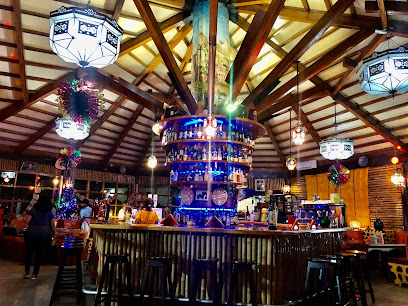
El Hard Rock Resto and Pub
Discover the vibrant dining experience at El Hard Rock Resto and Pub in Malabo – where delicious food meets live entertainment.
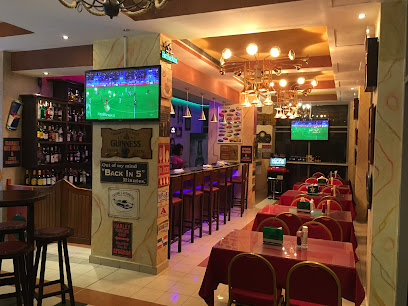
Olympus Skybar
Discover exquisite dining and breathtaking views at Olympus Skybar in Malabo - where every meal is a celebration under the stars.
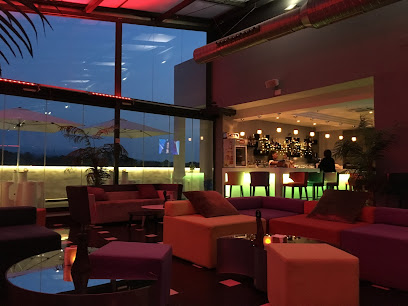
Restaurante Kalytero
Experience exquisite Mediterranean flavors at Restaurante Kalytero in Malabo – where culinary artistry meets vibrant atmosphere.
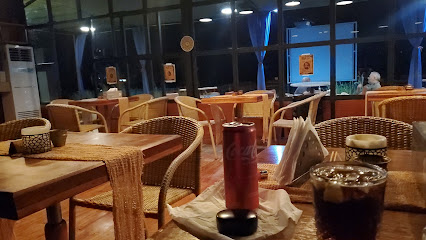
el paraiso
Experience authentic Equatorial Guinean cuisine at El Paraiso in Malabo – where flavor meets culture in every bite.
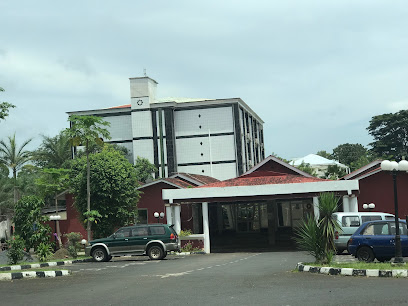
Restaurante L’Oriental
Discover authentic Equatoguinean cuisine blended with international flavors at Restaurante L’Oriental in Malabo.
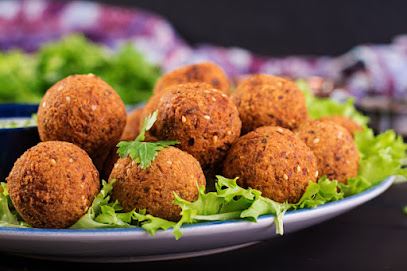
Lucy - Ethiopian Restaurant
Experience authentic Ethiopian flavors at Lucy - Ethiopian Restaurant in Malabo; where culture meets cuisine for an unforgettable dining adventure.
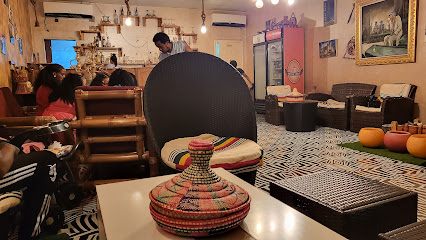
Markets, malls and hidden boutiques
Unicasa
Explore Unicasa in Malabo for an unparalleled selection of beauty supplies, cosmetics, and perfumes, perfect for every beauty enthusiast.
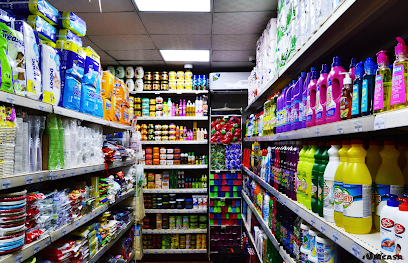
Tienda Nono
Explore Tienda Nono in Malabo for unique clothing and accessories that beautifully blend local culture with modern fashion trends.

TIENDA EN LÍNEA LA CASA KO
Explore the finest selection of formal wear at Tienda en Línea La Casa KO in Equatorial Guinea for all your elegant occasions.

Tienda NÚRIA
Explore Tienda NÚRIA in Malabo for an enchanting selection of home goods that embody the spirit of Equatorial Guinea.
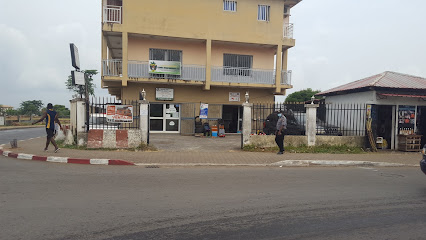
Ciber Banapá
Explore Ciber Banapá in Malabo for a unique selection of home goods that capture the vibrant spirit of Equatorial Guinea.
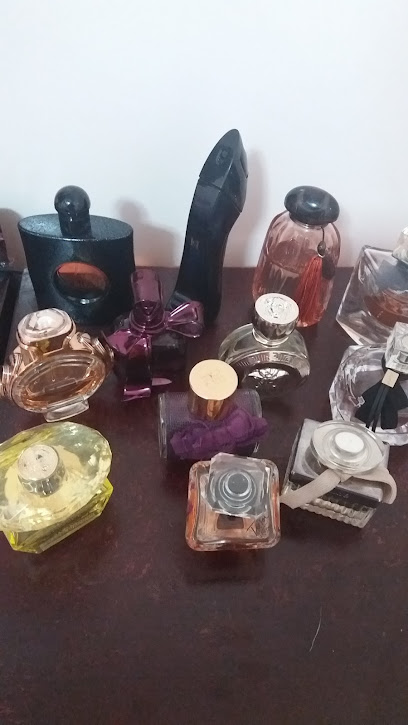
CERAMICO
Explore CERAMICO in Malabo for unique home goods and authentic crafts that embody the rich culture of Equatorial Guinea.
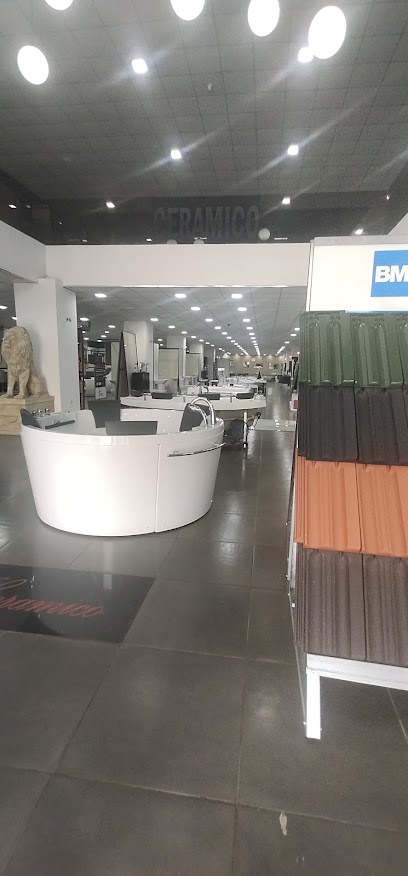
CADOSBE SHIP CHANDLER EQUATORIAL GUINEA S.L
Explore Malabo with ease! CADOSBE Ship Chandler offers essential supplies for tourists and locals alike in the heart of Equatorial Guinea.

LONGRICH AVEC TARAM
Explore the essence of health and beauty at Longrich Avec Taram in Malabo, Equatorial Guinea, offering premium wellness products inspired by local traditions.
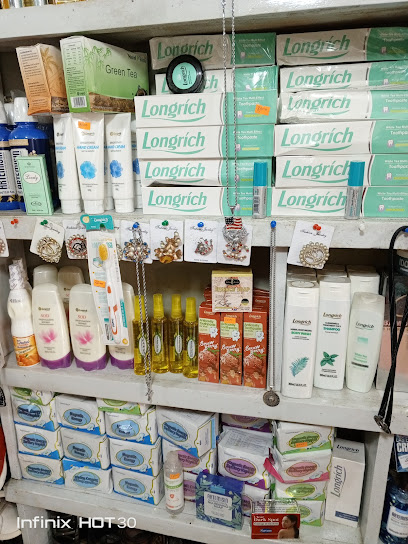
Mirinda
Discover the convenience of Mirinda, Malabo's essential stop for snacks, beverages, and local goods during your Equatorial Guinea adventure.

FBGESOLUCIONES
Explore FBGESOLUCIONES in Malabo for a unique shopping experience of home goods blending local culture and modern essentials.
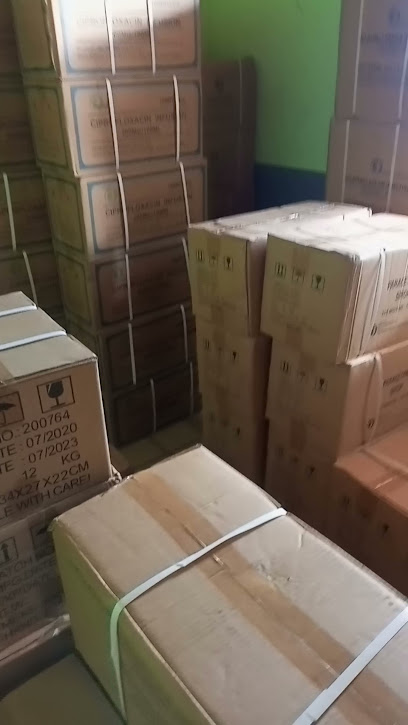
Happyboxbykara
Explore Happyboxbykara in Malabo for an authentic selection of local crafts and souvenirs that showcase Equatorial Guinea's vibrant culture.
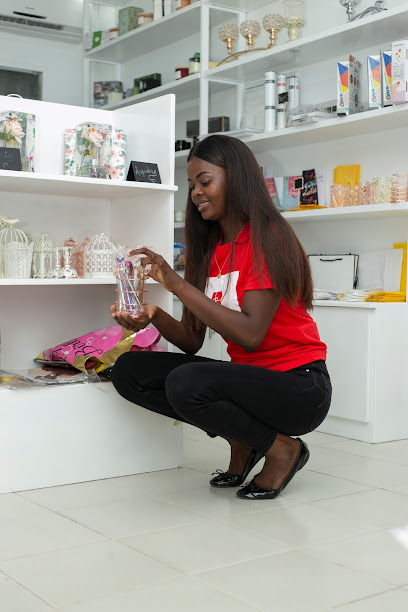
Shopping Place
Experience the vibrant shopping culture in Malabo, where local crafts meet modern fashion, creating a unique retail adventure.

Becker shop
Explore Becker Shop, a quaint used book store offering a wide selection of literary treasures in a cozy atmosphere perfect for all book lovers.

Rotonda Maqueda
Discover the vibrant culture of Equatorial Guinea at Rotonda Maqueda, a charming gift shop in Malabo offering unique handcrafted souvenirs.
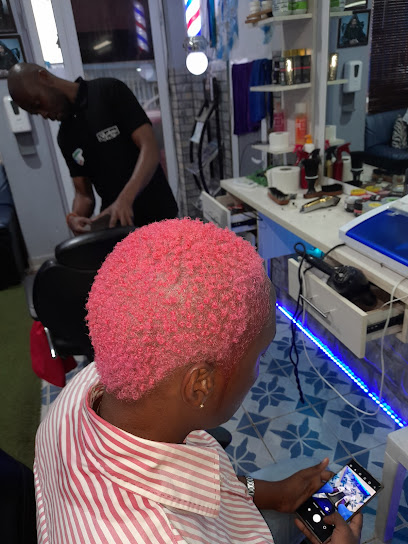
T Lo Regalo Malabo
Explore T Lo Regalo Malabo for authentic gifts and souvenirs that celebrate Equatorial Guinea's rich culture and craftsmanship.
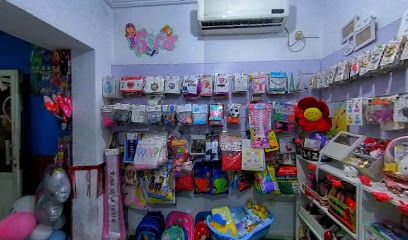
Essential bars & hidden hideouts
Aviator Pub and Café
Discover the vibrant atmosphere of Aviator Pub and Café in Malabo, blending delicious American cuisine with live entertainment and local culture.
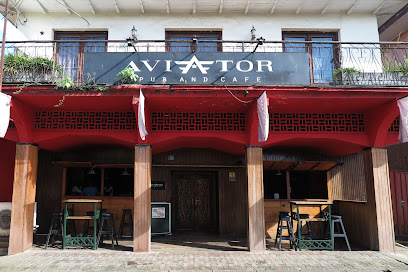
SAKOGE SL
Experience the vibrant nightlife of Malabo at SAKOGE SL, where locals and tourists gather for refreshing drinks and lively conversations.
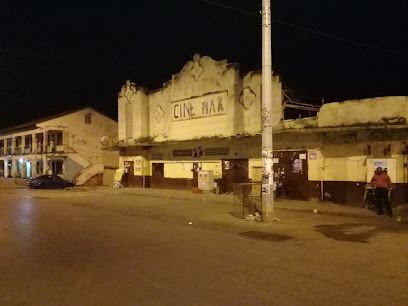
IMANI LOUNGE MALABO
Discover Imani Lounge in Malabo, where local flavors meet international cuisine in a vibrant, welcoming atmosphere perfect for relaxation and socializing.
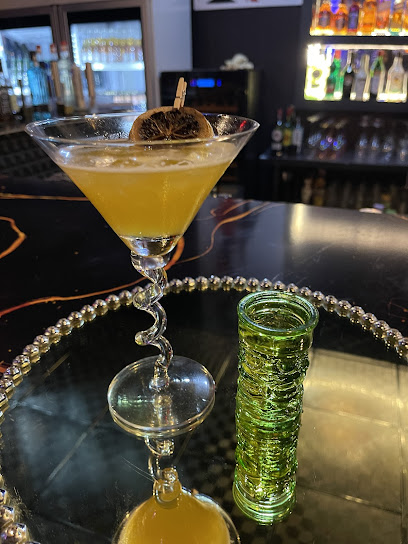
Bar Baney
Experience the vibrant ambiance and cultural richness at Bar Baney in Malabo, where drinks meet education in a lively setting.
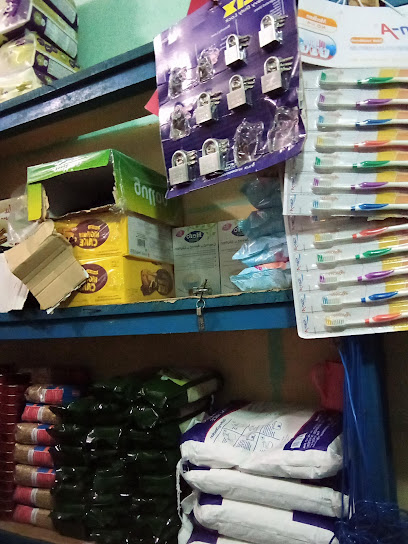
Bar Restaurante Entre Amigos
Discover the flavors of Equatorial Guinea at Bar Restaurante Entre Amigos, a top destination for grilled specialties and a vibrant dining experience.
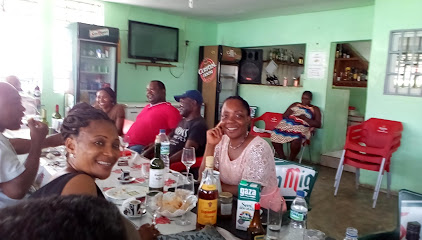
Hookah Paradise
Discover an enchanting cocktail bar in Malabo, offering a vibrant atmosphere, exquisite drinks, and authentic hookah experiences.
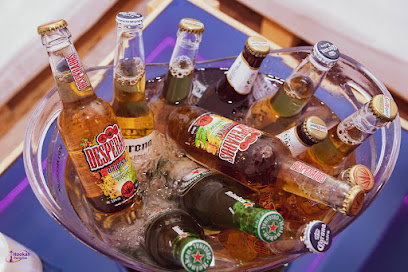
FACCIA LUNA LOUNGE
Experience the vibrant nightlife of Malabo at FACCIA LUNA LOUNGE, your go-to bar for relaxation and refreshing drinks in Equatorial Guinea.
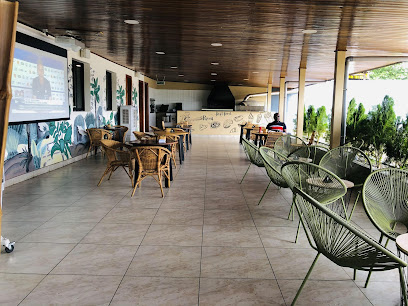
Vicatana,Malabo, Guinea Ecuatorial
Discover the charm of Vicatana, a cozy lounge in Malabo, Equatorial Guinea, offering authentic local flavors and a vibrant atmosphere.

Kistal Lounge Malabo
Discover the vibrant nightlife at Kistal Lounge in Malabo, where exquisite cocktails and lively atmosphere create unforgettable evenings.
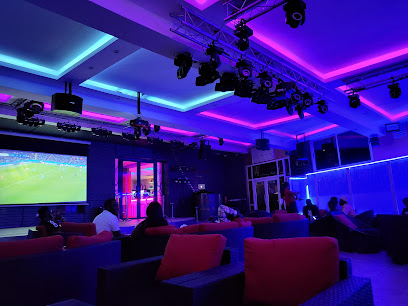
La Isla Bonita
Experience vibrant nightlife at La Isla Bonita in Malabo, where exquisite drinks and a lively atmosphere create unforgettable moments.
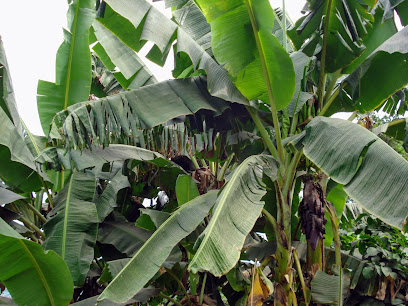
Cafe
Discover the vibrant café culture in Malabo, offering local flavors and a welcoming ambiance for every traveler.
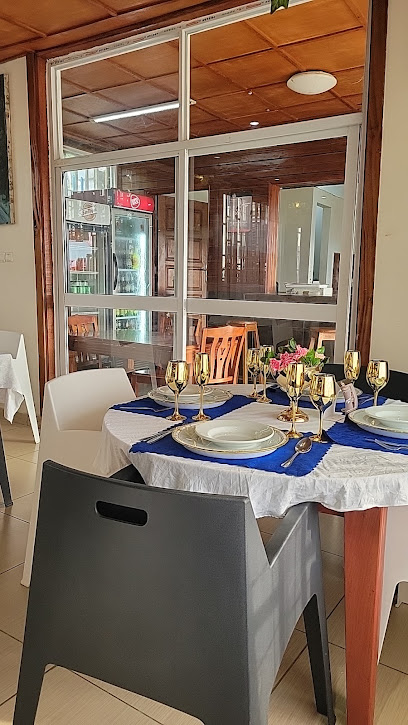
Bar Restaurant NSORK
Experience the vibrant nightlife at Bar Restaurant NSORK in Malabo, where local flavors and lively atmosphere come together for an unforgettable evening.

El Cafecito
Experience the local charm at El Cafecito, a cozy bar in Malabo, Equatorial Guinea, perfect for unwinding with friends and savoring local flavors.
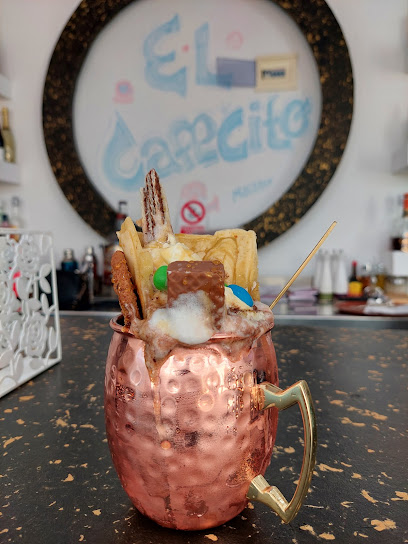
La Bodega
Experience the vibrant nightlife at La Bodega, Malabo's favorite bar serving delicious drinks and a warm atmosphere.
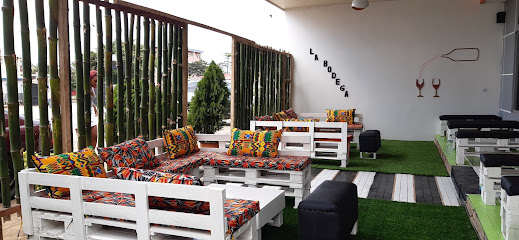
Local Phrases about Pico Basile
-
- HelloKamuesu
[kah-mweh-soo] - GoodbyeAdios
[ah-dyos] - YesEwa
[eh-wah] - NoEne
[eh-neh] - Please/You're welcomePor favor
[por fah-vor] - Thank youGracias
[grah-syahs] - Excuse me/SorryDisculpe
[dees-kool-peh] - How are you?Ndelebe?
[uhn-deh-leh-beh] - Fine. And you?Muy bien. Y tu?
[mwee byen. ee too] - Do you speak English?Hablas ingles?
[ah-blahs een-glehs] - I don't understandNo entiendo
[no ehn-tyen-doh]
- HelloKamuesu
-
- I'd like to see the menu, pleaseMe gustaria ver el menu, por favor
[meh goos-tah-ree-ah behr ehl meh-noo, poor fah-vor] - I don't eat meatNo como carne
[no koh-moh kahr-neh] - Cheers!Salud!
[sah-lood] - I would like to pay, pleaseMe gustaria pagar, por favor
[meh goos-tah-ree-ah pah-gahr, poor fah-vor]
- I'd like to see the menu, pleaseMe gustaria ver el menu, por favor
-
- Help!Ayuda!
[ah-yoo-dah] - Go away!Vete!
[veh-teh] - Call the Police!Llama a la policia!
[yah-mah ah lah poh-lee-see-ah] - Call a doctor!Llama al medico!
[yah-mah ahl meh-dee-koh] - I'm lostEstoy perdido
[ehs-toy pehr-dee-doh] - I'm illEstoy enfermo
[ehs-toy ehn-fehr-moh]
- Help!Ayuda!
-
- I'd like to buy...Me gustaria comprar...
[meh goos-tah-ree-ah kohm-prar] - I'm just lookingSolo estoy mirando
[soh-loh ehs-toy mee-rahn-doh] - How much is it?Cuanto cuesta?
[kwan-toh kwehs-tah] - That's too expensiveEs demasiado caro
[ehs deh-mah-syah-doh kah-roh] - Can you lower the price?Puede bajar el precio?
[pweh-deh bah-har ehl pree-see-oh]
- I'd like to buy...Me gustaria comprar...
-
- What time is it?Que hora es?
[keh oh-rah ehs] - It's one o'clockEs la una
[ehs lah oo-nah] - Half past (10)Media hora (10)
[meh-dyah oh-rah (deh-ees)] - MorningManana
[mah-nyah-nah] - AfternoonTarde
[tahr-deh] - EveningNoche
[noh-cheh] - YesterdayAyer
[ah-yehr] - TodayHoy
[oy] - TomorrowManana
[mah-nyah-nah] - 1Uno
[oo-noh] - 2Dos
[dohs] - 3Tres
[trehs] - 4Cuatro
[kwah-troh] - 5Cinco
[seen-koh] - 6Seis
[seys] - 7Siete
[syeh-teh] - 8Ocho
[oh-choh] - 9Nueve
[nweh-veh] - 10Diez
[dyehs]
- What time is it?Que hora es?
-
- Where's a/the...?Donde esta un/el...
[dohn-deh ehs-tah oon/ehl] - What's the address?Cual es la direccion?
[kwahl ehs lah dee-rehk-syohn] - Can you show me (on the map)?Me puede mostrar (en el mapa)?
[meh pweh-deh mohs-trahr (ehn ehl mah-pah)] - When's the next (bus)?Cuando es el proximo (autobus)?
[kwan-doh ehs ehl proh-ksee-moh (ow-toh-boos)] - A ticket (to ....)Un boleto (a ...)
[oon boh-leh-toh (ah ...)]
- Where's a/the...?Donde esta un/el...
History of Pico Basile
-
Before the arrival of European colonizers, Pico Basile and its surrounding regions were inhabited by the Bubi people. They considered the mountain a sacred site, often using it in their spiritual and cultural practices. The rich biodiversity of the area provided sustenance and materials for traditional crafts.
-
During the late 19th century, European explorers and missionaries ventured into the region. The Spanish, who colonized Equatorial Guinea, documented their first ascents of Pico Basile. These early expeditions laid the groundwork for more extensive colonial exploitation of the island's resources.
-
In the early 20th century, Pico Basile gained strategic military importance. Its elevation made it an ideal location for establishing radio and telecommunication stations. During World War II, the Spanish used the peak to monitor naval movements in the Gulf of Guinea.
-
After Equatorial Guinea gained independence from Spain in 1968, Pico Basile became a symbol of national pride. The government invested in infrastructure to make the mountain more accessible to both locals and tourists. In the 1970s, a road was constructed to facilitate travel to the summit.
-
In the late 20th and early 21st centuries, efforts to conserve the unique biodiversity of Pico Basile intensified. The area was declared a protected zone, and various international organizations collaborated with the local government to study and preserve its unique flora and fauna.
-
Pico Basile continues to be a focal point for cultural activities and festivals. Annual events often feature traditional Bubi music, dance, and storytelling, celebrating the mountain's historical and spiritual significance. These festivals play a crucial role in preserving the cultural heritage of the region.
Pico Basile Essentials
-
Pico Basile is located on Bioko Island in Equatorial Guinea. The nearest international airport is Malabo International Airport (SSG), situated in the capital city, Malabo. From Malabo, you can reach Pico Basile by car or taxi. The journey takes approximately 1-2 hours depending on traffic and road conditions. There are also organized tours and shuttle services that can be arranged in advance through local tour operators.
-
Transportation options in the area include taxis, rental cars, and organized tours. Taxis are widely available and can be hailed on the street or arranged through your hotel. It's advisable to agree on a fare before starting your journey. Rental cars offer the flexibility to explore at your own pace, but be aware that road conditions can vary. For those preferring guided experiences, many local tour operators offer packages that include transportation to and from Pico Basile.
-
The official currency of Equatorial Guinea is the Central African CFA franc (XAF). While credit cards are accepted in some hotels and larger restaurants, it's advisable to carry cash, especially in more remote areas such as Pico Basile. ATMs can be found in Malabo, so ensure you withdraw sufficient cash before departure. It's also a good idea to carry small denominations for easier transactions.
-
Pico Basile and its surrounding areas are generally safe for tourists, but standard precautions should be observed. Avoid displaying valuables and be cautious when traveling at night. Petty crime, such as pickpocketing, can occur in crowded areas. While Malabo is relatively safe, it's advisable to stay vigilant, especially in neighborhoods like Semu and Ela Nguema, where higher crime rates have been reported.
-
In case of emergency, dial 112 for police, medical, or fire assistance. Ensure you have travel insurance that covers medical emergencies. The main hospital in Malabo is Hospital General de Malabo, which is equipped to handle most medical situations. For minor issues, pharmacies in Malabo can provide over-the-counter medications. It's also recommended to have the contact information of your country's embassy or consulate.
-
Fashion: Do wear lightweight, breathable clothing due to the tropical climate. Avoid overly revealing attire, especially in rural areas. Religion: Do respect local customs and religious practices. Don't enter churches or mosques without appropriate attire, such as covering your shoulders and knees. Public Transport: Do be courteous and respectful to drivers and fellow passengers. Don't eat or drink on public transport. Greetings: Do greet people with a handshake and a smile. A friendly 'Buenos días' (Good morning) or 'Buenas tardes' (Good afternoon) is appreciated. Eating & Drinking: Do try local dishes and be open to new culinary experiences. Don't refuse hospitality, as it is considered impolite.
-
To experience Pico Basile like a local, consider visiting during local festivals and events, where you can immerse yourself in the culture and traditions of Equatorial Guinea. Engage with local guides who can provide valuable insights into the history and ecology of Pico Basile. Don't miss the opportunity to sample traditional dishes such as 'sopa de pescado' (fish soup) and 'malamba' (a local drink made from sugarcane).
Nearby Cities to Pico Basile
-
Things To Do in Luba
-
Things To Do in Limbe
-
Things To Do in Buea
-
Things To Do in Tiko
-
Things To Do in Douala
-
Things To Do in Kribi
-
Things To Do in Edea
-
Things To Do in Calabar
-
Things To Do in Uyo
-
Things To Do in Nkongsamba
-
Things To Do in Port Harcourt
-
Things To Do in Mbini
-
Things To Do in Mamfe
-
Things To Do in Dschang
-
Things To Do in Santo Antonio








